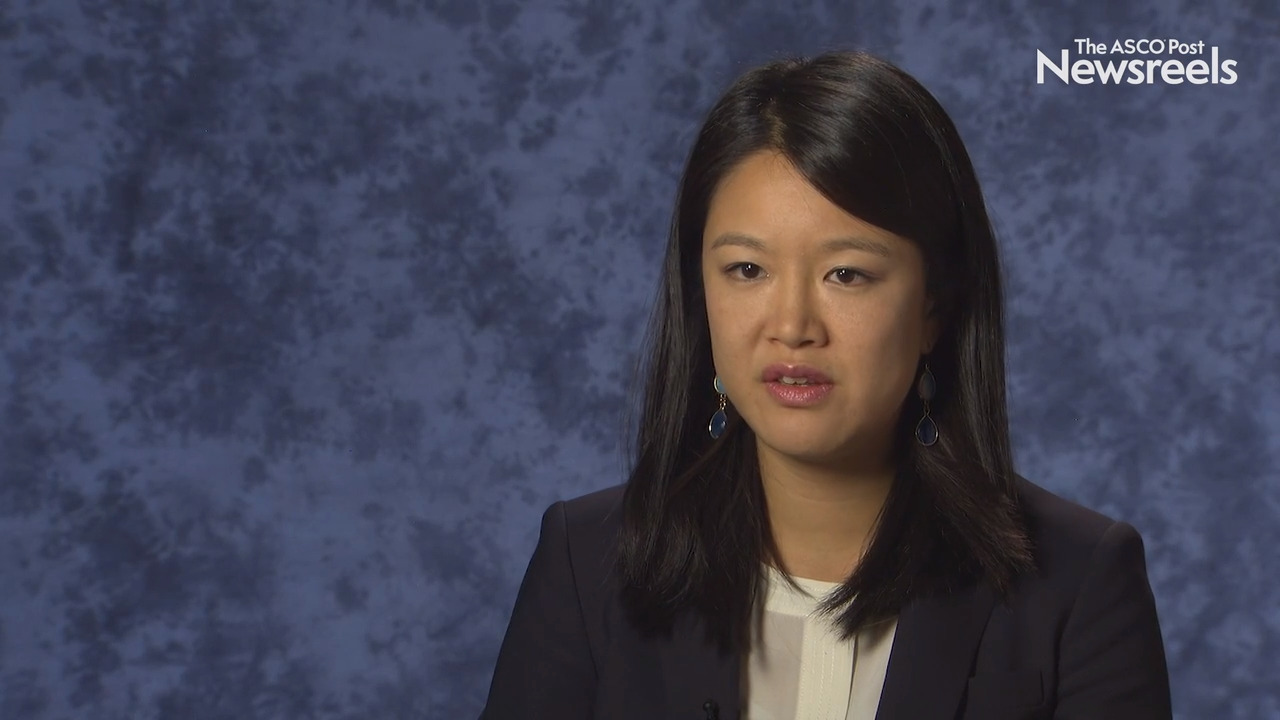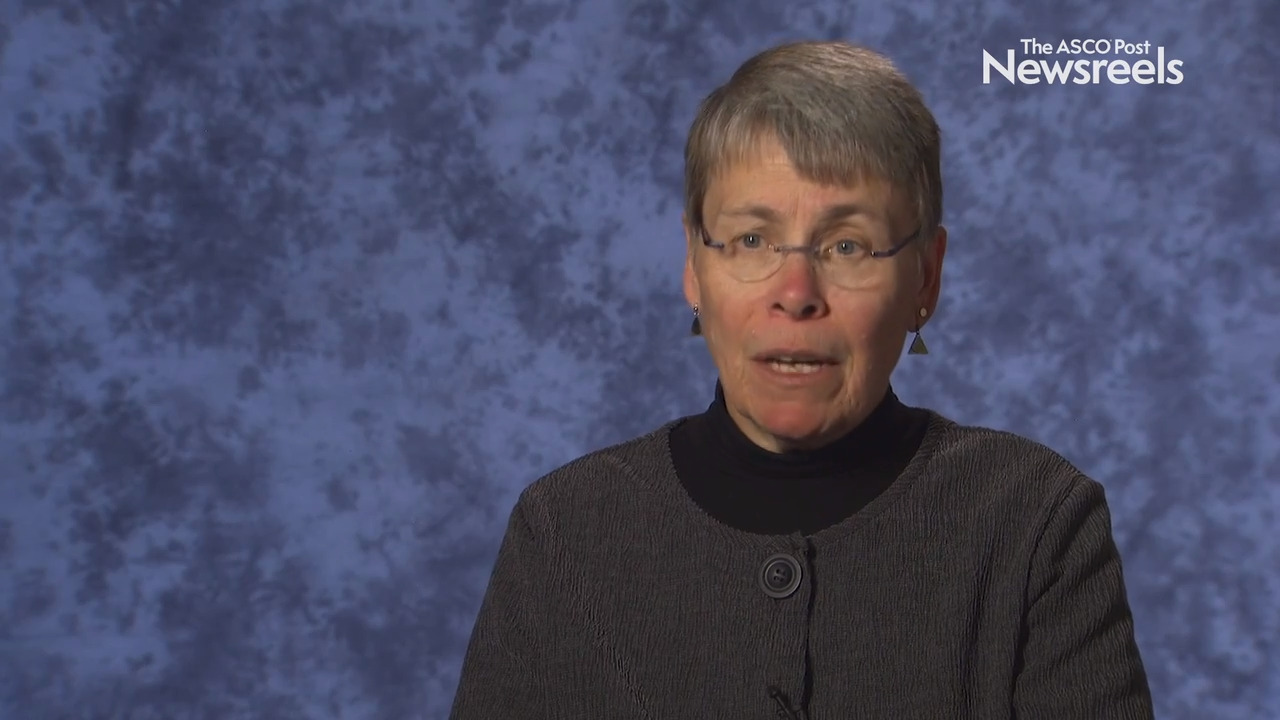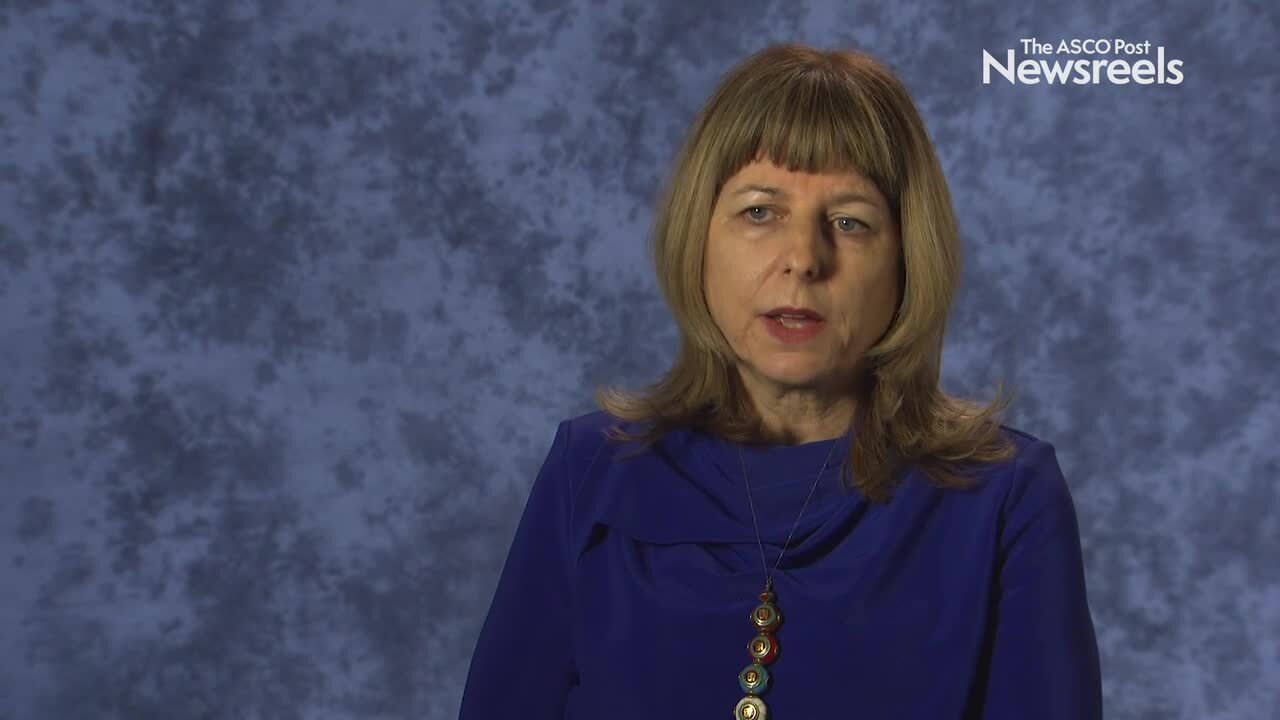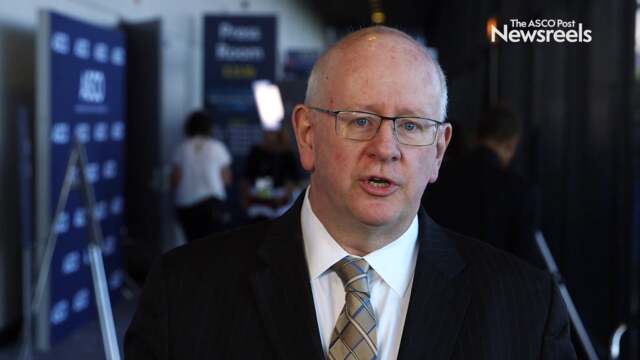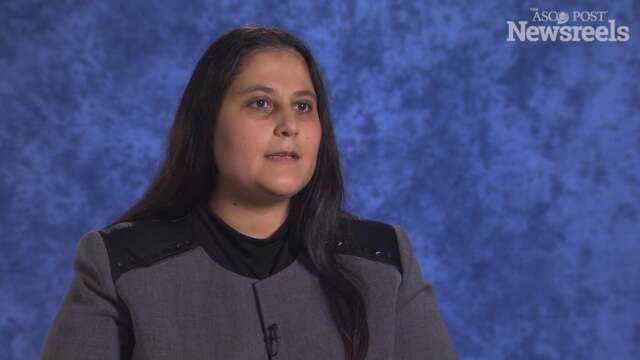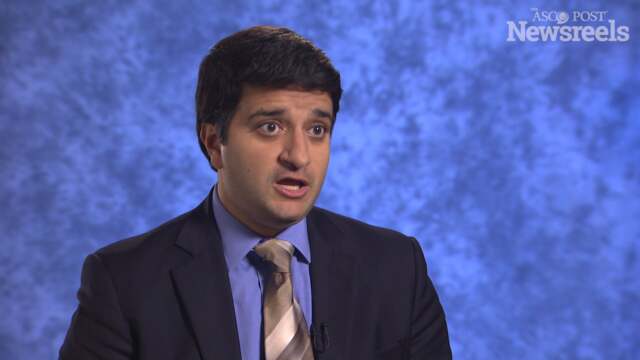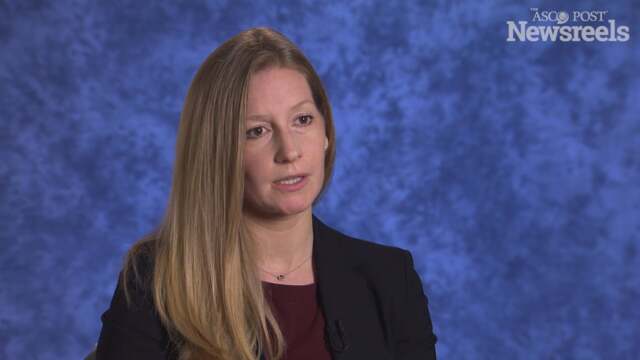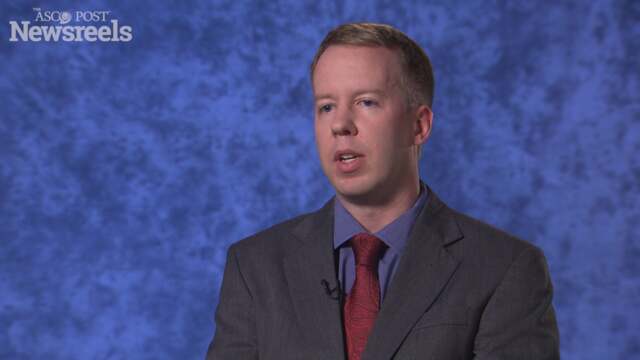Artificial Intelligence–Based Smartphone App Decreases Pain and Reduces Inpatient Hospitalizations in Patients With Cancer
A smartphone application utilizing elements of artificial intelligence was associated with improved cancer pain outcomes and a significant reduction in pain-related hospital admissions, according to data presented at the 2018 Palliative and Supportive Care in Oncology Symposium.1 Results of the...
Palliative Care in the Pediatric Oncology Setting
Cancer is the leading cause of disease-related childhood death. To better serve the special needs of this highly vulnerable patient population, pediatric palliative care teams use a personalized, holistic, and interdisciplinary approach tailored to relieve the physical, psychosocial, and spiritual ...
Unequal Burden of Cancer-Related Suffering and Need for Palliative Care
The global burden of cancer-related suffering is tremendously unbalanced, according to Eric L. Krakauer, MD, PhD, Director of the Global Palliative Care Program at Massachusetts General Hospital and Harvard Medical School, Boston and a lead coauthor of the Report of the Lancet Commission on Global...
Factors Affecting Use of Outpatient Specialty Palliative Care Clinics Among Patients With Advanced Cancer
In a study reported in the Journal of Oncology Practice, Yu et al identified factors affecting use of outpatient specialty palliative care (OSPC) among patients with advanced cancer in the University of Pittsburgh Medical Center Hillman Cancer Center Network (UPMC-HCCN). Study Details The...
Katherine C. Lee, MD, on Emergency Surgery and End-of-Life Care
Katherine C. Lee, MD, of Massachusetts General Hospital, discusses her study findings that showed older patients with metastatic cancer who survived emergency general surgery experienced higher intensity end-of-life care than similar patients who did not undergo surgery (Abstract 56).
Mary E. Johnson on Holding Vigil With Dying Loved Ones
Mary E. Johnson, author of Stay With Me Awhile, discusses her play, a compilation of vigil stories from across cultures and religions, and the profound impact the performances have had on audience members.
Suleika Jaouad on Making the Most of a Life Interrupted: A Young Adult Perspective on Cancer
Suleika Jaouad, an Emmy Award–winning writer, advocate, and cancer survivor who was diagnosed at age 22 with myelodysplastic syndrome and acute myeloid leukemia, discusses what she has learned about coping with cancer, learning from it, and growing beyond it.
Leslie J. Blackhall, MD, on Unregulated Opioid Access: Consequences and Outcomes
Leslie J. Blackhall, MD, of the University of Virginia, discusses abuse of opioids, prescribing responsibly, and reducing cancer pain while also decreasing the risk of misusing these agents.
2018 Palliative Care: Can an AI-Based App Help Manage Cancer-Related Pain?
A study of 112 patients with metastatic solid tumors found that the use of an artificial intelligence (AI)-based smartphone app reduced both the severity of patients’ reported pain and hospital admissions. After an 8-week period, patients who used the AI-powered app to monitor and address...
Developing Patient-Centered Palliative Care From Diagnosis to End of Life
In December, The University of Texas at Austin Dell Medical School will launch an innovative cancer care model called the CaLM (cancer life re-imagined) Clinic as part of its new cancer center, the Livestrong Cancer Institutes. The goal of the Livestrong Cancer Institutes and the CaLM Clinic is to...
End-of-Life Dashboard Drives Transformation With Actionable Personalized Data
A NUMBER OF STUDIES from the palliative care literature have shown that nonbeneficial health-care interventions actually may harm patients’ quality of life, increase patient and caregiver distress, and drive costs. Yet, according to the National Cancer Institute, about 30% of all cancer spending...
ICU Admissions During Terminal Hospitalizations in Patients With Stage IV Lung Cancer
In a study reported in the Journal of Oncology Practice, Mrad et al found an increase in the proportion of patients with stage IV lung cancer admitted to the intensive care unit (ICU) during terminal hospitalization between 1998 and 2014. A large increase in palliative care contacts also occurred,...
Closing the Gender Divide in Preference for Palliative Care
Eight years ago, a survey of the preferences of Dutch patients with cancer for health care found that while gender was one aspect influencing how men and women approach cancer care, it was the most important, with men, generally, regarding most care aspects as less important than women. The study...
Expanding the Use of Provider Orders for Life-Sustaining Treatment for Patients With Advanced Cancer
Patients with advanced cancer often get more aggressive treatment than they want because too few oncologists elicit their end-of-life treatment preferences.1,2 In response to this problem, leading associations, including ASCO3,4 and the Institute of Medicine,5 have called for more advance care...
Quality Improvement Initiative for Documenting Goals of Care for Patients With Advanced Cancer
In a study reported in the Journal of Oncology Practice, Karim et al found that a quality improvement initiative at a single cancer center improved documentation of goals-of-care discussions and referral to palliative care for patients with advanced cancer. Study Details In the study,...
Impact of Peer-Review Intervention on Radiotherapy Schedules for Palliative Treatment of Bone Metastases
In a single-center study reported in the Journal of Oncology Practice, Walker et al found that institution of a peer-review process resulted in shorter fractionation schedules for palliation of bone metastases, consistent with current guidelines. As stated by the authors, “Shorter...
Meeting the Challenges of Immunotherapy-Related Toxicities
In 2011, the U.S. Food and Drug Administration (FDA) approved ipilimumab (Yervoy), an anticytotoxic T-lymphocyte– associated antigen 4 (CTLA-4), the first checkpoint inhibitor for the treatment of advanced melanoma.1 Since then, several more checkpoint inhibitors directed at both the programmed...
Geographic Differences in End-of-Life Cancer Care
When it comes to how much end-of-life care a patient with cancer receives, geography may, indeed, be destiny, according to new research led by Harvard Medical School that found differences in this type of cancer care across different parts of the country. The findings, published by Keating et al...
Palliative Care Preferences in Male Patients With Cancer
Men with advanced cancer are 30% less likely than women to consider palliative care, according to a University of Rochester Medical Center (URMC) study. Researchers believe the findings reflect social norms about gender roles, as well as widespread messages in the media and society about...
A. Oliver Sartor, MD, on Issues in Immunotherapy
A. Oliver Sartor, MD, of Tulane University, speaks anecdotally about immunotherapy for prostate cancer and shares his experiences in speaking to patients with late-stage disease about the knowns, unknowns, risks, and toxicities of using a therapy outside the context of a clinical trial setting. The content in this post has not been reviewed by the American Society of Clinical Oncology, Inc. (ASCO®) and does not necessarily reflect the ideas and opinions of ASCO®.
Owen A. O’Connor, MD, PhD, on Issues in Immunotherapy
Owen A. O'Connor, MD, PhD, of Columbia University Medical Center, shares his perspective on immunotherapy for patients with late-stage cancer in the context of a clinical trial setting and recent Right-to-Try legislation. The content in this post has not been reviewed by the American Society of Clinical Oncology, Inc. (ASCO®) and does not necessarily reflect the ideas and opinions of ASCO®.
How Learning What’s on Your Patient’s Bucket List May Improve Care
It may sound too good to be true, but asking patients a simple question about what is on their bucket list can actually spark a dialogue about how best to make their cancer care and survivorship fit into their life plans, as well as be an effective way to identify their end-of-life care goals,...
Voluntarily Stopping Eating and Drinking Is Legal—and Ethical—for Terminally Ill Patients Looking to Hasten Death
Terminally ill patients with cancer will sometimes ask their clinicians for help with assisted or hastened death.1 Although palliative care and hospice care can usually address the concerns of most patients, some have physical or existential suffering that is refractory to comfort and supportive...
AMA Rejects Recommendation to Reaffirm Opposition to Medical Aid in Dying
On June 11, the American Medical Association (AMA) House of Delegates voted 56% to 44% to reject a report by its Council on Ethical and Judicial Affairs (CEJA) that recommended the AMA maintain its Code of Medical Ethics’ opposition to medical aid in dying. Instead, the House of Delegates...
Racial/Ethnic Disparities in the Quality of End-of-Life Care Among Patients With Lung Cancer
Significant disparities in the quality of end-of-life lung cancer care were found among racial/ethnic minorities, with higher odds of experiencing potentially preventable medical encounters during end of life as compared with non-Hispanic whites. These findings were published by Karanth et al in...
Using Video Decision-Support Tools to Facilitate End-of-Life Discussions With Patients
GUEST EDITOR Addressing the evolving needs of cancer survivors at various stages of their illness and care, Palliative Care in Oncology is guest edited by Jamie H. Von Roenn, MD. Dr. Von Roenn is ASCO’s Vice President of Education, Science, and Professional Development. Research shows that...
Updated ASTRO Guideline for Palliative Radiotherapy in Lung Cancer
The American Society for Radiation Oncology (ASTRO) has issued an update to its clinical guideline for the use of palliative-intent radiation therapy for patients with incurable non–small cell lung cancer (NSCLC). Reflecting new evidence from randomized clinical trials, the guideline now...
Support, Inform Patients With ASCO Resources
Stock your practice with ASCO resources for your patients. Visit ASCO’s patient information website, Cancer.Net, for a newly updated comprehensive guide to colorectal cancer at cancer.net/colorectal and a shorter, one-page colorectal cancer fact sheet. Copies can be purchased from the ASCO...
Association of Early Palliative Care With Patient-Reported Outcomes and End-of-Life Care
In a study reported in the Journal of Clinical Oncology, Hoerger et al found that patients with a higher proportion of early palliative care visits addressing behavioral coping strategies had improvement in depression symptoms and quality of life. In addition, those with a high proportion of visits ...
The Challenge of Prognostication in the Era of Immunotherapy
GUEST EDITOR Addressing the evolving needs of cancer survivors at various stages of their illness and care, Palliative Care in Oncology is guest edited by Jamie H. Von Roenn, MD. Dr. Von Roenn is ASCO’s Vice President of Education, Science, and Professional Development. Although advances in such ...
Why Palliative Care Isn’t Just for Older Patients With Cancer
It is well established that adolescents and young adults (AYAs) with cancer—defined by the National Cancer Institute as those between the ages of 15 and 39 years—have not reaped a comparable survival benefit as either younger or older adult cancer survivors over the past 4 decades, despite...
Working Together to Help Pediatric Patients With Cancer Live and Live Well
While many patients with cancer can benefit from palliative care to ease symptoms from the disease or its treatment, for children with cancer, especially critically ill children, palliative care can provide an additional layer of medical and emotional support for both young patients and their...
Helping Patients With Advanced Disease Transition From Focused to Intrinsic Hope
While hope for a cure after a cancer diagnosis is a feeling both patients and oncologists rightly cling to during treatment, when too much emphasis is placed on this type of “focused” hope, it can make it more difficult for patients to face their mortality. Moreover, such a focus can deny patients ...
ASCO Answers Palliative Care: A Resource for Patients
Do your patients have questions about palliative care/supportive care? Help them better understand their prognosis and goals of treatment, clarify their expectations, and maintain their quality of life with the ASCO Answers Palliative Care booklet. This booklet shows how palliative care is used...
Walther Cancer Foundation Endows New ASCO Special Award and Lecture for Palliative and Supportive Care
The Walther Cancer Foundation, Inc., a private foundation based in Indianapolis, Indiana, has endowed a new ASCO award and lecture bearing its name to be presented annually at the Palliative and Supportive Care in Oncology Symposium. This grant represents a new foray for the foundation as it...
Caring for the Frail, Older Patient With Cancer: Four Practical Approaches
Cancer may be a disease of aging, but data suggest that older patients with cancer are undertreated, especially with respect to chemotherapy. One analysis showed that approximately 40% of patients in their 70s—and 60% of patients in their 80s—do not receive adjuvant therapy after surgery for colon...
‘Triple Threat’ Conditions May Predict Mortality in Patients With Cancer Presenting to Emergency Departments
Dyspnea, delirium, and poor performance—so-called “triple threat” conditions—are known to predict short survival in palliative care. According to data presented at the 2017 Palliative and Supportive Care in Oncology Symposium,1 however, the presence of at least two of these symptoms in patients...
Concurrent Palliative Care: Recommendations From the ASCO Clinical Practice Guideline
Updated in 2016, the ASCO clinical practice guideline on the integration of palliative care into standard oncology care provides evidence-based recommendations to oncology clinicians, patients, family and friend caregivers, and palliative care specialists about providing high-quality care for...
Palliative Care Intervention Reduces Total Health-Care Costs in Patients With Advanced Cancer
A matched case-controlled study among Medicare beneficiaries with metastatic lung, colorectal, breast, and prostate cancers has found that palliative care consultation significantly reduced total health-care costs following intervention. According to data presented at the 2017 Palliative and...
Digital Palliative Care Curriculum Improves Knowledge, Skills, and Opioid Prescribing Behavior
A new electronic curriculum delivered via e-mail with push technology may provide an efficient, cost-effective solution to the shortage of palliative care faculty serving the nation’s oncology fellowship programs. According to data presented at the 2017 Palliative and Supportive Care in Oncology...
Early Integrated Palliative Care Improves Patient Coping Strategies, Quality of Life, and Symptoms of Depression
A new study has shed light on how palliative care interventions may improve patient outcomes. According to data presented at the 2017 Palliative and Supportive Care in Oncology Symposium,1 patients with incurable cancer who received early integrated palliative care had an increased use of active...
Advancing Care Across the Cancer Continuum
Addressing the need to integrate palliative and supportive care practices into medical specialties to ensure optimal patient-centered care across the cancer continuum and the evidence-based remedies to accomplish that goal were the focus of the nearly 300 study abstracts presented at the 2017...
How Effective Communication Is Integral to Patient-Centered Care
Communicating effectively with patients with advanced cancer not only helps patients and their family members successfully transition to palliative and end-of-life care, it can prevent physicians from experiencing professional burnout, according to Robert M. Arnold, MD, Distinguished Service...
Areej El-Jawahri, MD, on A Revolutionary Plan for End-of-Life Care
Areej El-Jawahri, MD, of Massachusetts General Hospital, discusses a video tool that helps overcome communication barriers so that patients can make more informed decisions for end-of-life care and their preferences are respected.
Sandip Patel, MD, on Immunotherapy: New Developments and Toxicity Challenges
Sandip Patel, MD, of the University of California, San Diego, discusses diagnosing and managing immune-related adverse events from immune checkpoint blockade and the toxicities of these treatments.
Jamie Jacobs, PhD, on Early Integrated Palliative Care: The Positive Effects
Jamie Jacobs, PhD, of Massachusetts General Hospital Cancer Center, discusses study results that showed integrating oncology and palliative care early in the course of treatment helps people with incurable lung and gastrointestinal cancers cope better and have an improved quality of life and less depression (Abstract 92).
Michael Hoerger, PhD, on Early Palliative Care: Study Results
Michael Hoerger, PhD, of Tulane University, discusses the effect on quality of life, depression, and end-of-life care when physicians focus on coping or on decision-making and advance care planning (Abstract 154).
Jacob J. Strand, MD, on Dealing With Opioid Use Disorders
Jacob J. Strand, MD, of the Mayo Clinic, discusses tips and tools that clinicians can use to develop universal precautions for prescribing opioids in oncology and palliative care practice.
Thomas J. Smith, MD, on Palliative Care and Outpatient Treatment: Expert Perspective
Thomas J. Smith, MD, of Johns Hopkins University School of Medicine, discusses successful models of integrating palliative care into outpatient oncology.
Charles F. von Gunten, MD, PhD, on Palliative Care in Oncology: A Fellows Curriculum
Charles F. von Gunten, MD, PhD, of OhioHealth, discusses an online curriculum that changed younger physicians’ use of palliative medicine in practice during the year after fellowship training (Abstract 202).
